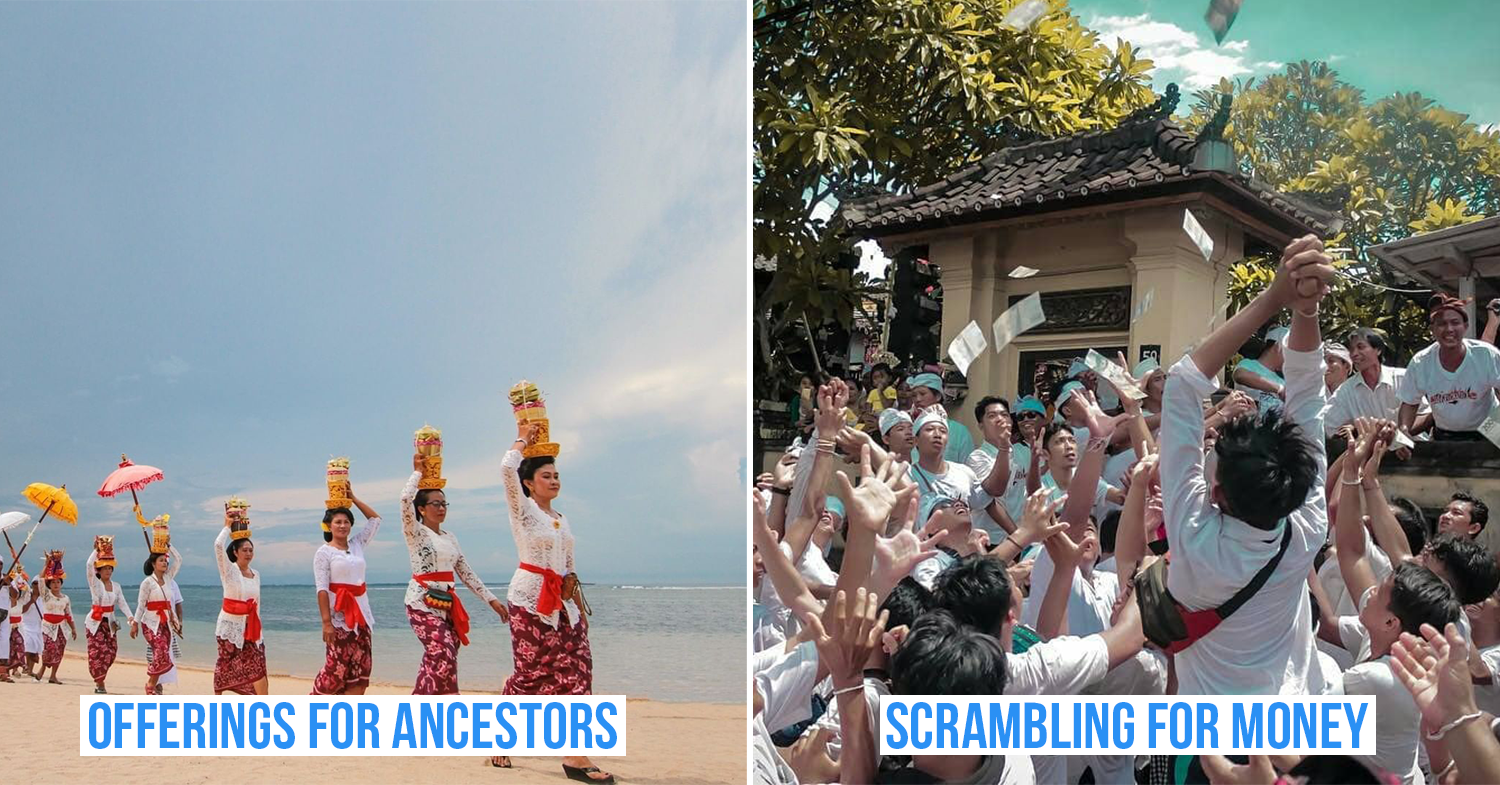Bali residents celebrate triumph of good over evil with Galungan
Even without mentioning the beautiful beaches of Bali, this little island of paradise is already special for its unique culture. Thanks to the strong influence of Hinduism, Bali has its own share of traditions and rituals that you can’t find anywhere else in Indonesia, such as the Galungan Festival.
The 10-day celebration, which follows the 210-day cycle of the Pawukon calendar used by the people of Bali, is set to return today, 16th September after being held in February. While not as well known as the Nyepi day of silence, Galungan holds religious significance to the people of Bali.
The religious significance of Galungan
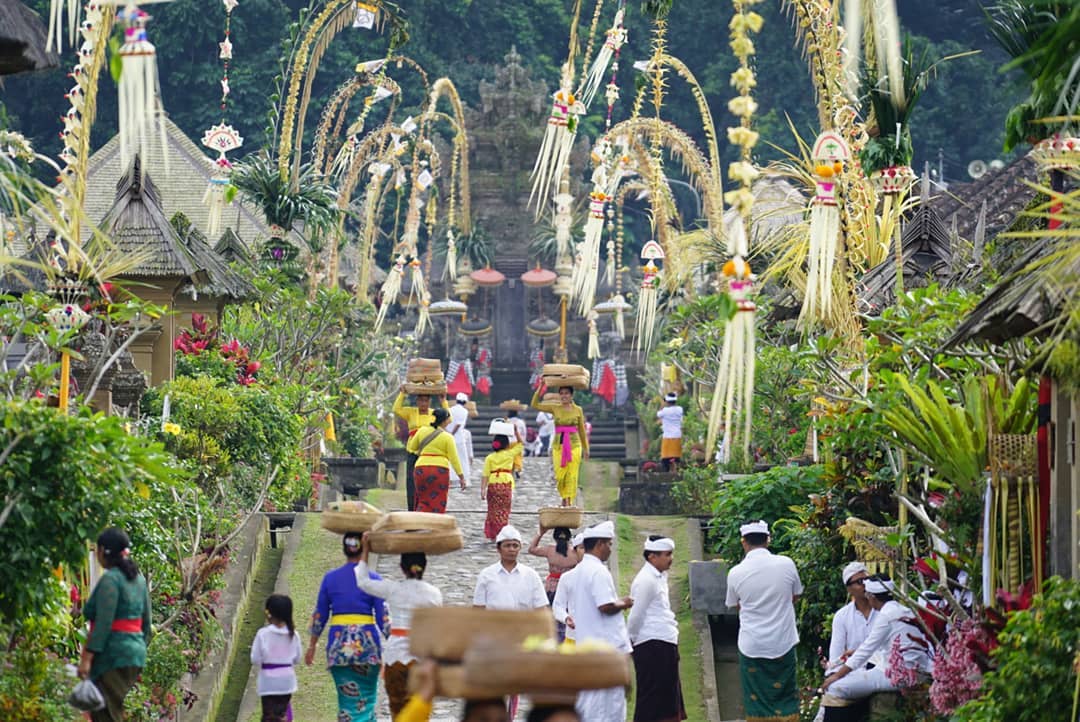
People dressed up for Galungan
Image credit: @tandjungsari
With temples, locally known as pura, dotted across the island, the fact that Bali takes their religious traditions seriously is a known fact all over the world. Galungan too is no different as the people of Bali celebrate the victory of good over evil, or dharma over adharma.
The people of Bali believe that the spirits of their ancestors descend from the heavens to visit their former homes during the celebration, and it’s their duty to welcome and show their gratitude to these spirits.
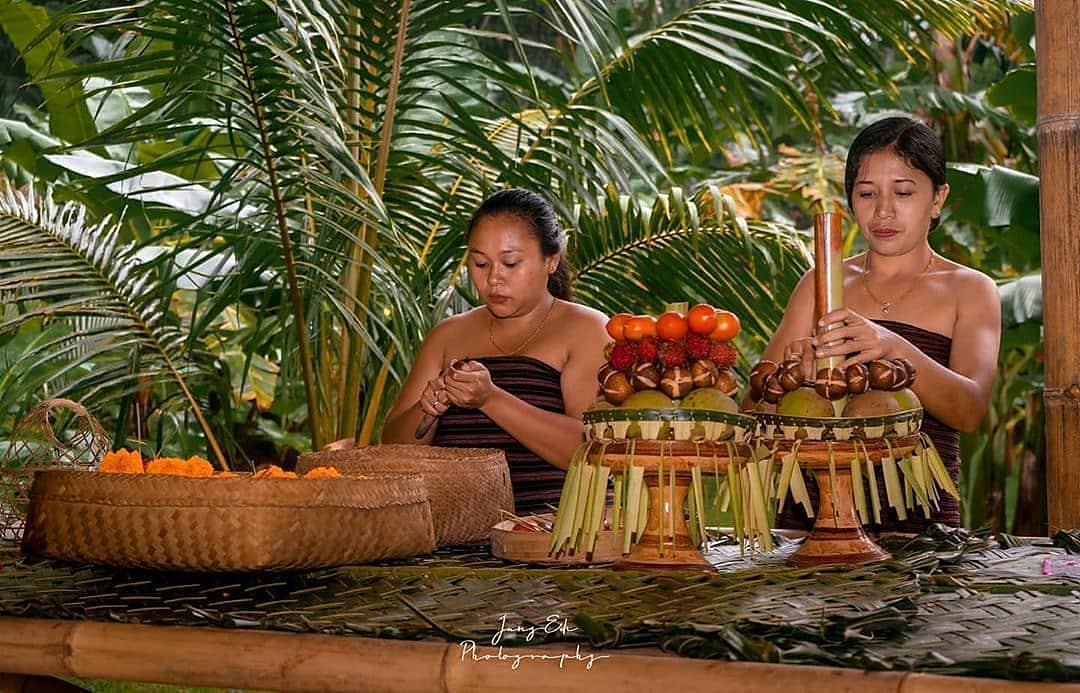
Preparing offerings for Galungan
Image credit: @info_marga, Jung Edi Photography
They do this by preparing sacrifices for offerings and other ritual ceremonies that make the island come alive during this period. While only the people of Bali can partake in the celebration, tourists can usually get a look at the cultural traditions thanks to the scale of the festivities.
How the people of Bali celebrate Galungan
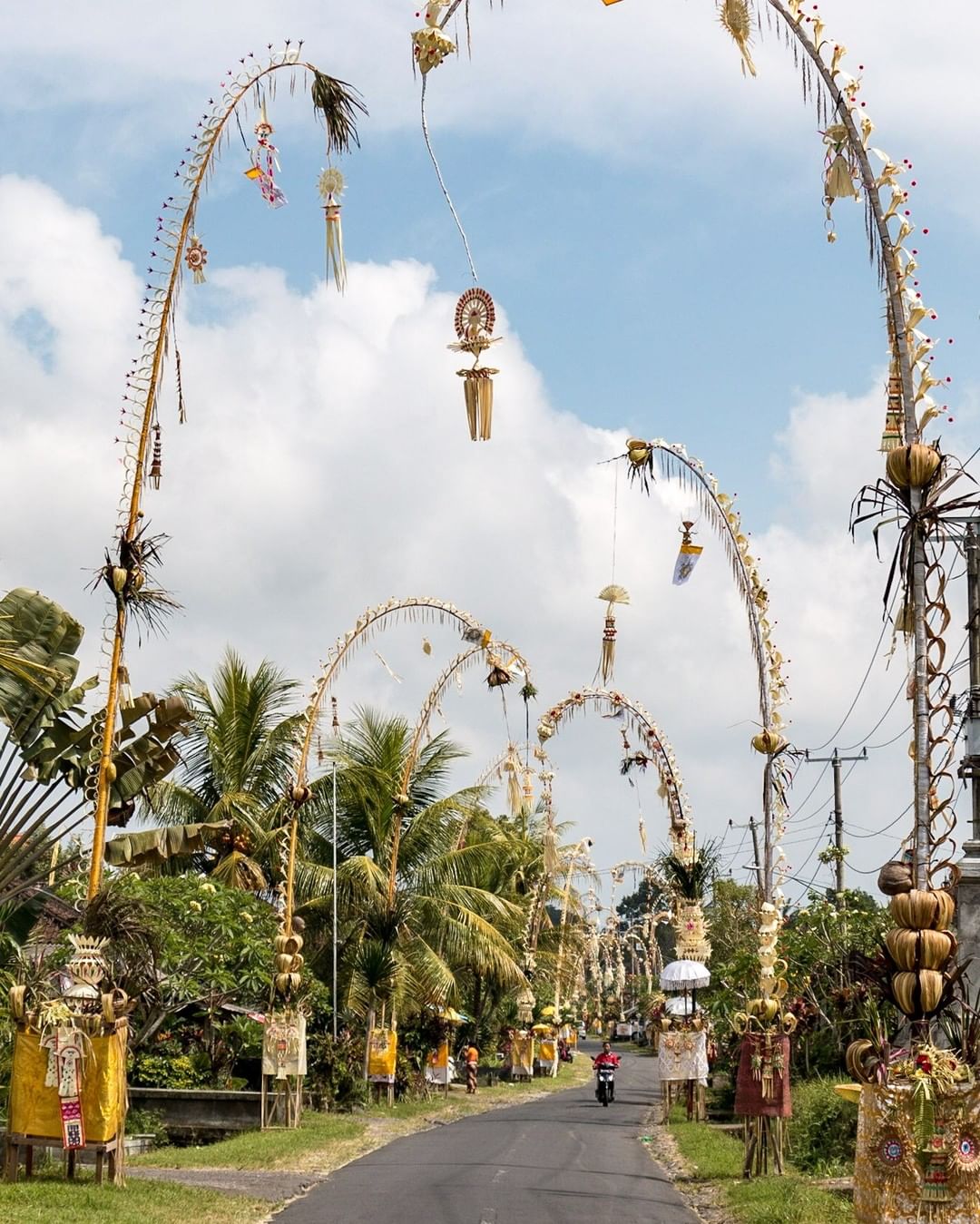
Penjor lining up a street in Bali
Image credit: @nowbalimag
As with Christmas trees popping up out of nowhere by year’s end, you can tell Galungan is coming around when the streets of Bali begin to be filled with penjor, or decorated bamboo poles like the ones you’d find in traditional Indonesian weddings.
In Galungan, the festivities start even before the celebration with the people of Bali preparing offerings, locally known as sesajen, beforehand. The day before Galungan is known as penampahan, where animals, usually chicken and pigs, are sacrificed akin to the Islamic tradition of qurban.
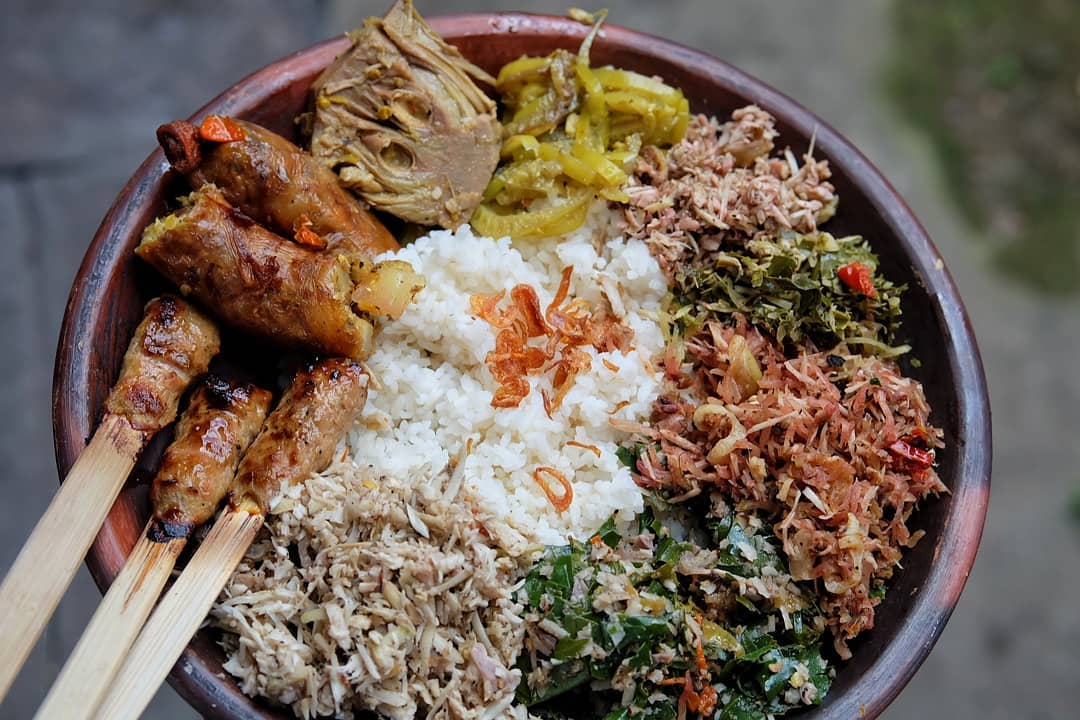
A more complete version of lawar with rice and skewered meat
Image credit: @madewedastra
The influx of food also means this is a perfect time for tourists to taste some of Bali’s delicacies, such as the lawar, a dish made of mixed vegetables and minced meat, served with rice.
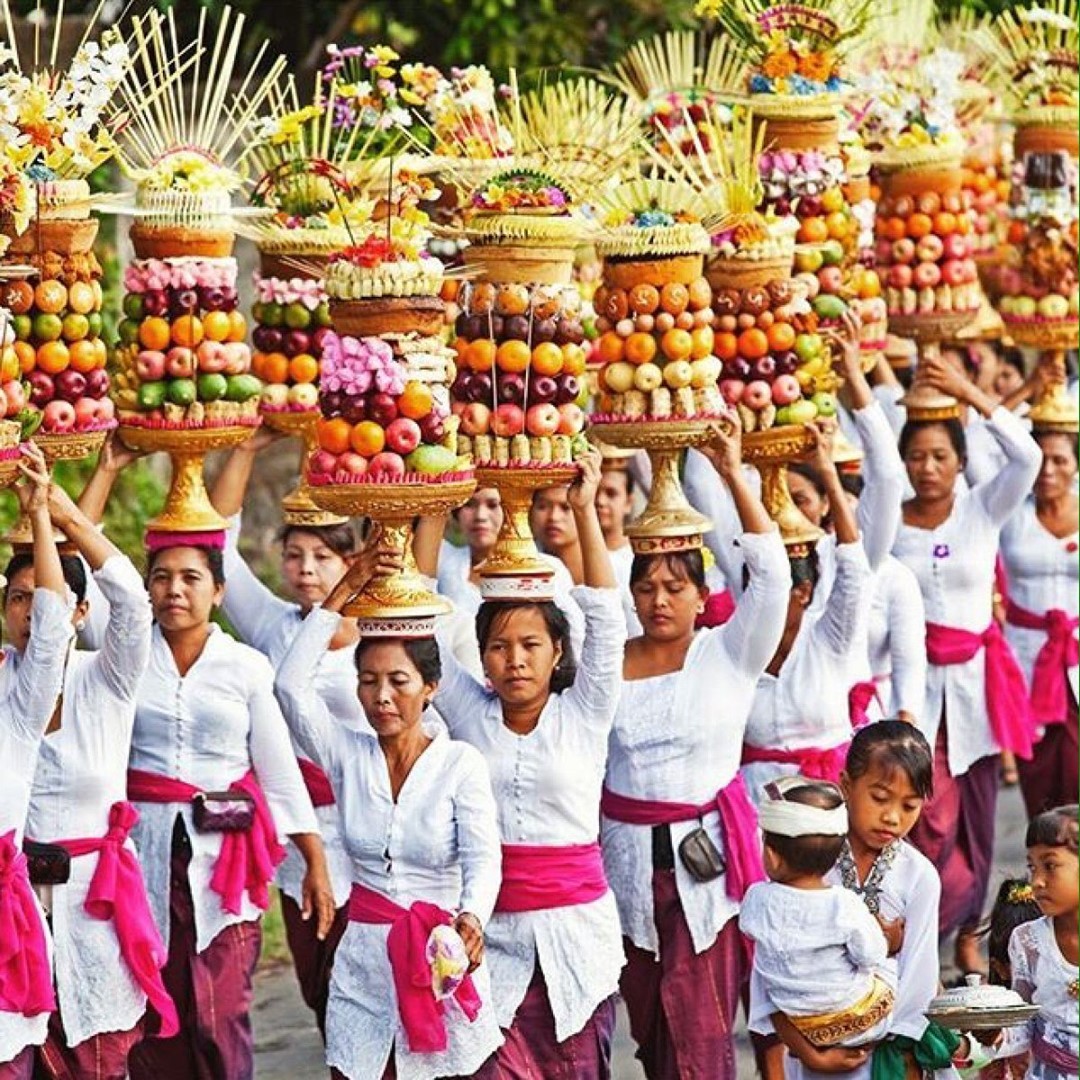
Balinese women carrying offerings to the temple
Image credit: @radiantlyaliveyoga
Come Galungan, people of Bali flock to the temples to pray and present their offerings, and the rows of Balinese women carrying extravagant offerings on their heads usually makes for a pretty enchanting sight.
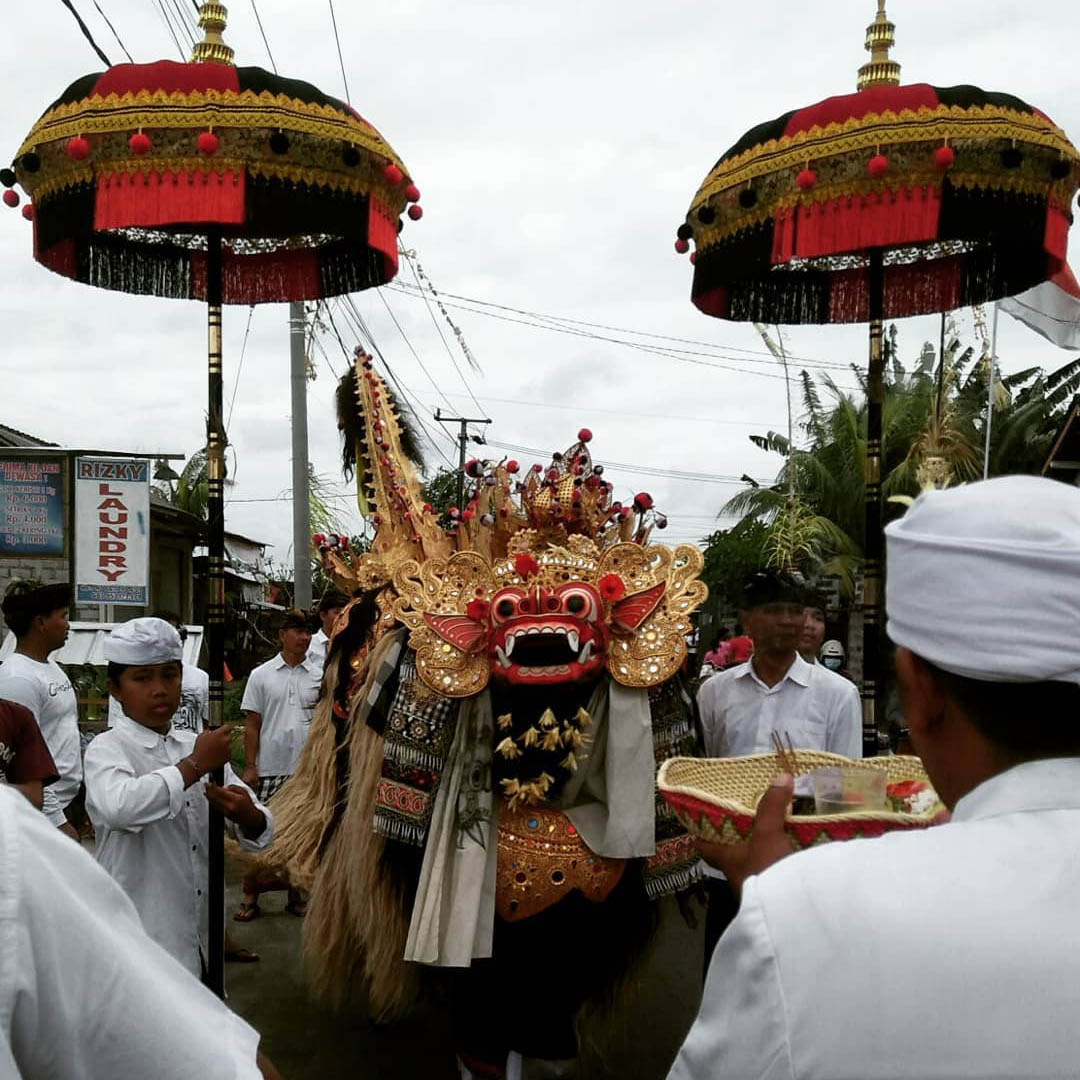
Barong parade during Galungan
Image credit: @colleh_wideka
It’s also in this period that the tradition of Ngelawang is performed where children dress as the mythical beast, Barong, and perform exorcism rituals around the village.
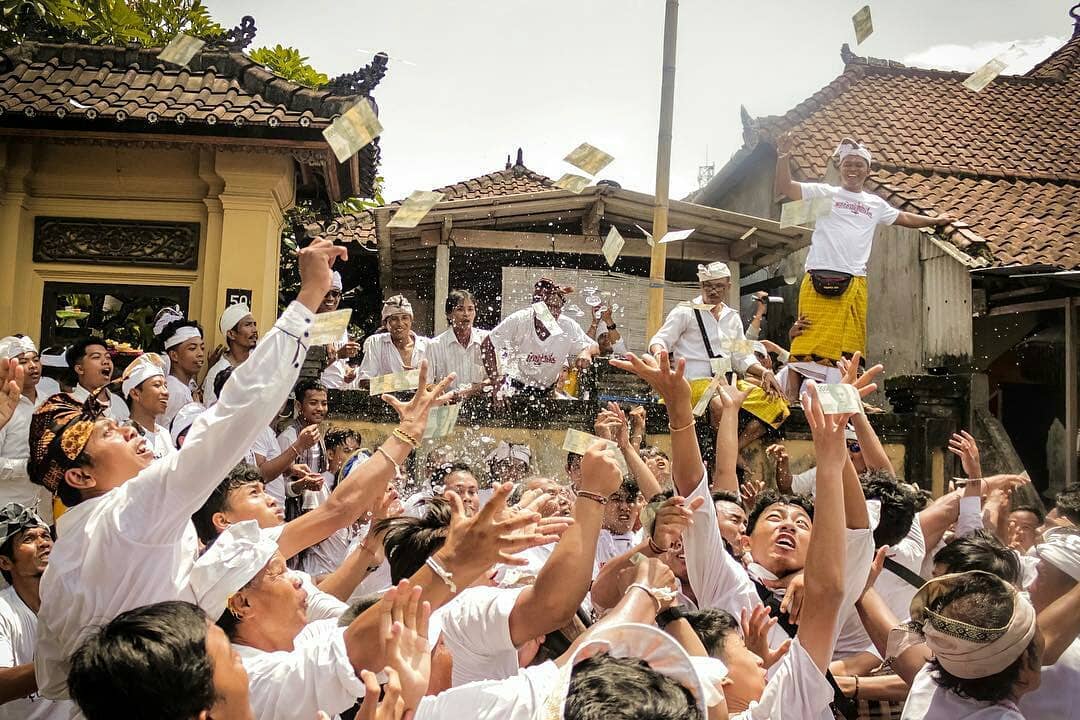
People jostling for money during Mesuryak
Image credit: @infogrambali
The celebration continues until the tenth and final day, known as Kuningan, where the spirits are believed to ascend back to heaven. In the region of Tabanan, this day is marked by the Mesuryak ritual, where monetary offerings are thrown in the air as people scramble over each other in a hunt for the biggest spoils.
As can be expected, the Mesuryak tradition doesn’t always end well, with bruises and sores being the only reward for some of the participants.
The unique tradition of Galungan
Bali is synonymous with pristine beaches but not to be missed are the fascinating cultural traditions, which still runs strong even after decades of tourism development.
At the moment, the cloud of COVID-19 hangs over the celebration but in 6 months’ time, hopefully once everything has settled down, make sure that your next trip to Bali coincides with the next edition of Galungan.
For more about Bali, check out these stories:
- Baby giraffe born in Bali during the pandemic named Corona
- 8 Bali spas with luxury massages
- 8 restaurants, cafes, and bars in Seminyak worth visiting
Cover image adapted from @ritzcarltonbali and @infogrambali
Enjoying The Smart Local Indonesia? Follow us on Facebook, Instagram, and Twitter for more stories like this. If you have a story to share, email us at [email protected].
